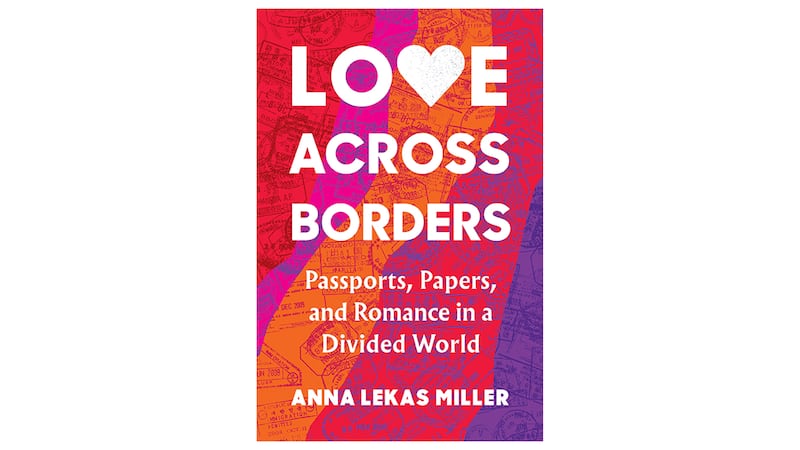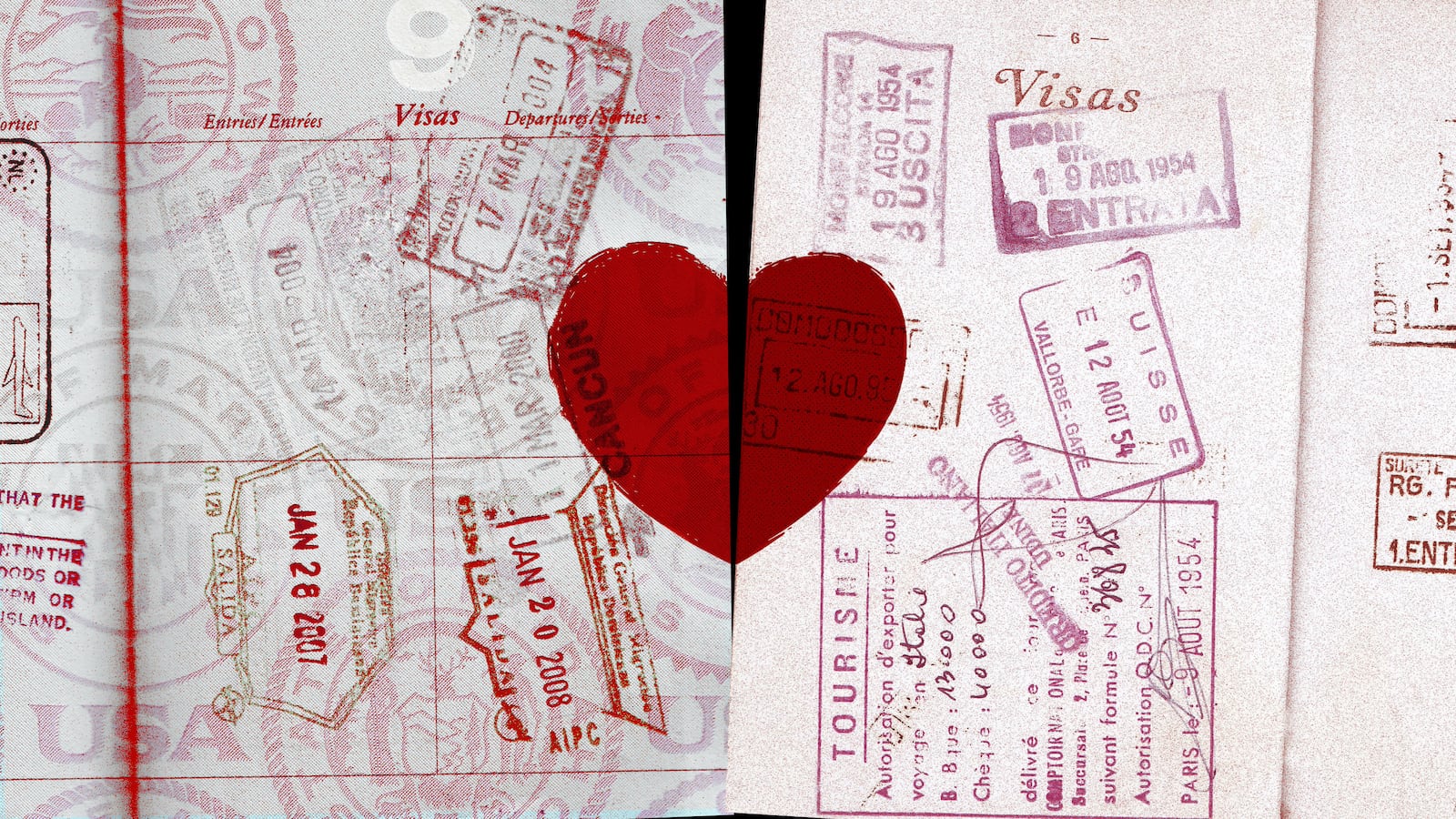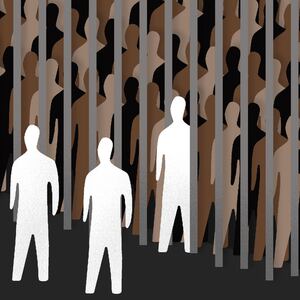When I first fell in love with my—now husband—Salem, in Istanbul, it felt like we had everything in common. We were both journalists with a deep hunger to see the world and tell the kinds of stories that we thought were important. But there was one crucial difference: I had a U.S. passport and could travel as I pleased. He was from Syria and, by extension, was effectively stuck in the Middle East.
At first it didn’t matter. But when the Turkish government started cracking down on refugees in 2015—and kicked Salem out, we suddenly didn’t know where we were going to live. Worse yet, I didn’t know if we could find a place to live together—where do you go when your boyfriend’s passport is not worth the paper that it is printed on?
Love Across Borders is the story of what happened next, but it is also the stories of dozens of couples like us. It is the story of Syrian couples who did not have the convenience of a U.S. passport between them, a Yemeni-American couple who braved both the war in Yemen and the Muslim ban to be together, Mexican-American couples separated by U.S. immigration policies, and many others from around the world. But here is how it all began.
“I’m being banned from Turkey,” Salem’s voice came in flat, without so much as a greeting.
I was in my friend’s living room when I got the call. Salem had just spent the past two weeks in Iraq filming the U.S.-backed military offensive to take back Mosul from ISIS, and I was eagerly awaiting his return after a particularly tumultuous time apart. We were used to communicating frequently whenever we were away from one another, but Salem rarely had cell phone reception on the front lines of Mosul. I distracted myself from imagining how an ISIS car bomb could swallow a convoy of journalists by spending long hours with friends, cooking elaborate meals, and playing board games with them while we waited out a snowstorm together. We thought it would be a quiet beginning to the new year.
Instead, an ISIS shooter dressed as Santa Claus stormed an Istanbul nightclub on New Year’s Eve, starting 2017 by opening fire on more than 700 people whose only options to survive were to play dead or leap into the freezing Bosphorus. Even though I was far away from the nightclub, Salem assumed the worst and chased a signal through the abandoned streets of Eastern Mosul until he could get hold of me. Neither of us imagined then that the danger that would change our lives would be lurking at passport control, a few days later.
“What are they going to do?” I rationalized, energetically pacing around my friend’s apartment. It felt as if we were surrounded by disasters, first a war, next a terrorist attack that happened too close for comfort, now Salem being told that he couldn’t come home. “Kick out a Syrian refugee that has nowhere to go?”
Salem was not the first journalist to be kicked out of Turkey. Dozens of other foreign correspondents had recently been either detained or denied entry, typically after reporting from the Kurdish areas in the Eastern part of the country. But while other journalists wore their deportations with a badge of honor—a sign that they had committed crimes of journalism worthy of exile—their definition of exile was setting themselves up in a comfortable city like Athens or Berlin and continuing their work as usual.
Meanwhile Salem was already living in exile—and had no way of escaping to a safer city in Europe or North America, as some of our friends did. Worse yet, if some bureaucrat decided that he should be sent back to Syria, he would certainly be killed. It was dangerous for anyone. But with Salem’s track record of being wanted by the regime and making films critical of ISIS along with numerous other jihadist groups, he wouldn’t stand a chance.
I leaned out of the window and uncharacteristically lit a cigarette, a habit I previously had only indulged in socially. Istanbul was supposed to be our romantic sanctuary, where it didn’t matter that I was an expat while he was a refugee. An Iranian-Canadian friend once joked that Istanbul’s Atatürk Airport was the only place in the world where it didn’t matter which of her two passports she presented. Now, it felt like everything was changing; I didn’t see how our love story could survive without the city that had brought us together.
As our world began to fissure and fracture, I realized how quickly borders could stop a love story in its tracks. How can two people navigate a world that won’t allow them to be together? As a journalist, I had witnessed the way that the Syrian civil war had uprooted its people, scattering them to Lebanon and Turkey, and later Europe, sometimes sending loved ones fleeing in opposite directions. But this was happening in other parts of the world, as well. I had a U.S. passport and could at least travel and see if a long-distance relationship could work. What about people who did not?
I set out to write this book to chronicle the stories of people who love one another in spite of borders. It is the story of Syrian lovers who fell for each other despite being separated by the Mediterranean Sea, and of a Honduran queer couple who fled street gangs and death threats to be together, only to be separated by ICE agents once they crossed into the U.S. It is about U.S. citizens who were separated from their partners, some by Obama’s deportation policies and others by Trump’s Muslim ban, showing that borders continue to stand in the way of people trying to be with their loved ones, regardless of which party holds political power.
Many parts of this book have a naturally American orientation. I am an American journalist who came of age during the war on terror and started gathering these stories at a time when Donald Trump was bellowing about building a wall at the U.S.–Mexico border and ordering a total and complete shutdown of Muslims entering the United States. But this xenophobia is not limited to U.S. borders, and neither are these stories. This book also tells the stories of people who came to the United Kingdom as subjects of the British Empire, only to be unlawfully stripped of their citizenship in a national scandal that left thousands of families stranded between the Caribbean and the United Kingdom. It is the stories of young men from West Africa who dreamed of opportunities in Europe only to encounter the rise of xenophobia and neofascism after leaving their loved ones behind.
A book about borders must also reckon with the question of citizenship and statelessness. For this reason, I have also included stories of Palestinians who were born stateless in refugee camps, and people who fell through the bureaucratic cracks when the victors of war drew the borders of new countries, erasing people’s homelands from the map. What happens when you belong to a country that no longer exists? Papers are not just the flimsy pages of a passport or the brittle plastic of a residency permit. They are identity documents, grounding us in a society, granting us the right to live, work, and vote. Sometimes, we can extend these privileges to the people that we love. Other times, we cannot. Inevitably, it affects the way that we move through the world and fall in love.
At times, this book is my story. As Salem and I found ourselves navigating a world that opened its doors for my passport and put up its walls for his, I became obsessed with the ways that arbitrary laws and invented boundaries were shaping our ability to be together. Some of these questions were practical. Where could we live in a world that felt as if it had no room for our relationship? As we wrestled with the fallout of the Syrian civil war and the Muslim ban, we got to know each other in a strange kind of exile, where our love—and my passport—were the only things that held us together. What if our anger at the situation turned into anger at one another? I was afraid of the way these rules could limit our love, and of the jealousy I felt toward couples who could love without restrictions.
Who could we be if these laws did not exist?

From Love Across Borders: Passports, Papers, and Romance in a Divided World © 2023 by Anna Lekas Miller. Reprinted by permission of Algonquin Books.






